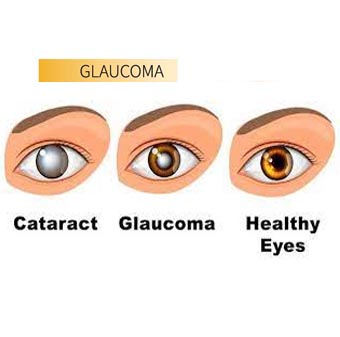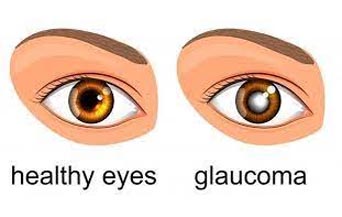

What is glaucoma?
Glaucoma is one of the vast common causes of blindness. It affects about 2% of the general Population.
In Glaucoma the pressure of fluid within the eye gradually increases to a level that is not tolerated by the sensitive tissues of the eye. As a result the optic nerve which carries the vision sensation to the brain is damaged. The person affected does not usually notice the progressive damage caused by glaucoma until at late stage when the damage becomes irrepairable resulting in permanent loss of vision and complete blindness. So Glaucoma acts like a silent killer of eye and that makes it early diagnosis a major challenge and necessity.
Risk Factors
- - It can occur in any age group even newborn and commonly above 40 years.
- - Family history of glaucoma.
- - Myopia, Hypermetropia,
- - B.P.
- - Diabetes
Symptoms:
- - Mostly silent killer-Without any significant symptoms so the need for basic checkup for every patient above 40 years
- - Pain in and around eyes.
- - Gradual decrease in side vision.
- - Coloured halowes/ring seen around bulb
Early Detection:
- - Tonometery-for measurement of pressure. (Must be less than 20 or better around 15).
- - Fundus examination –for evaluation of optic disc and its cupping.
- - Automated Perimeter- For diagnosing any early loss of any island of vision which otherwise can not be told even by patient himself/herself.
- - Gonioscopy- For seeing angle of eye for differentiating between open and close angle glaucoma.
- - Optical coherence tomography-It images and measure RMFL and the optic nerve head and help in the detection of glaucoma.
Treatment:
- - Medication-Regular anti glaucoma eye drops (1 or 2 types in combination) is effective in mild to moderate pressure control. Periodic eye exam in combination and perimetery is essential to ensure that the medication is working.
- - Laser-In some angle closure glaucoma especial pupillary block, laser iridotomy or trabeculoplasty can be done to partially or fully control the pressure. (In combination with medicines.)
- - Surgeury-It is the last stage to control the glaucoma if:
- - Either the medication or laser treatment is insufficient for controlling pressure.
- - Patient is non compliant and unreliable.
- - Even after operative treatment, patients should continue periodic checkups to ensure adequate control of eye pressure.
